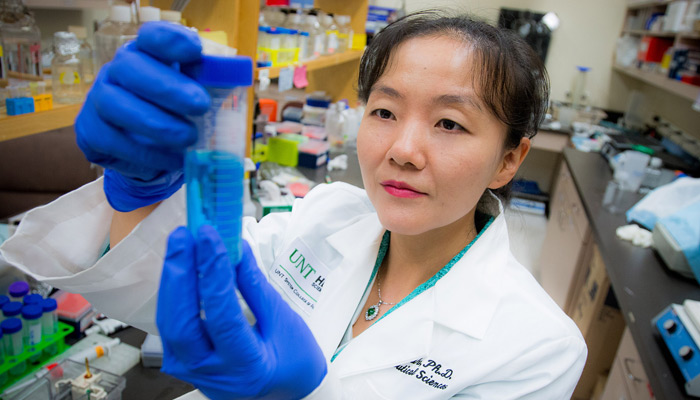Stopping a disabling eye disease

What if you couldn’t see well enough to drive, read or cook, or even recognize the face of your child or best friend?
That happens to many people who have age-related macular degeneration (AMD). About 15 million Americans have the disease, according to the American Society of Retina Specialists.
AMD is the No. 1 reason for central vision loss and blindness in people past age 65, and there’s no cure.
But there’s hope on the horizon. A researcher at UNT Health Science Center is looking for a way to prevent or slow AMD.
“Seeing is basic to life, like hearing or breathing,” said Hongli (Catherine) Wu, PhD, Assistant Professor of Pharmaceutical Science.
AMD is caused by damage to an eye structure called the macula. It’s the retina’s most sensitive area and makes sharp vision possible. In AMD, protein deposits thicken the macula and make it less sensitive.
Dr. Wu’s research is finding enzymes that show promise in slowing or stopping these proteins’ formation in the eye. Her work is supported by a $160,000 grant from the BrightFocus Foundation.
“As our population ages, eye disorders become more prominent, and the demand for new treatments increases,” said Dr. Wu, who also is an award-winning teacher the UNT System College of Pharmacy at UNTHSC.
The next step would be to find a medication to deliver the enzymes to the right place in the eye.
Said Dr. Wu, “My research team which includes my collaborators, Iok-Hou Pang, Pharmaceutical Science Chair; and Sai Chavala, MD, Surgery Professor, has obtained promising data and is one step closer to finding a cure.”





Social media